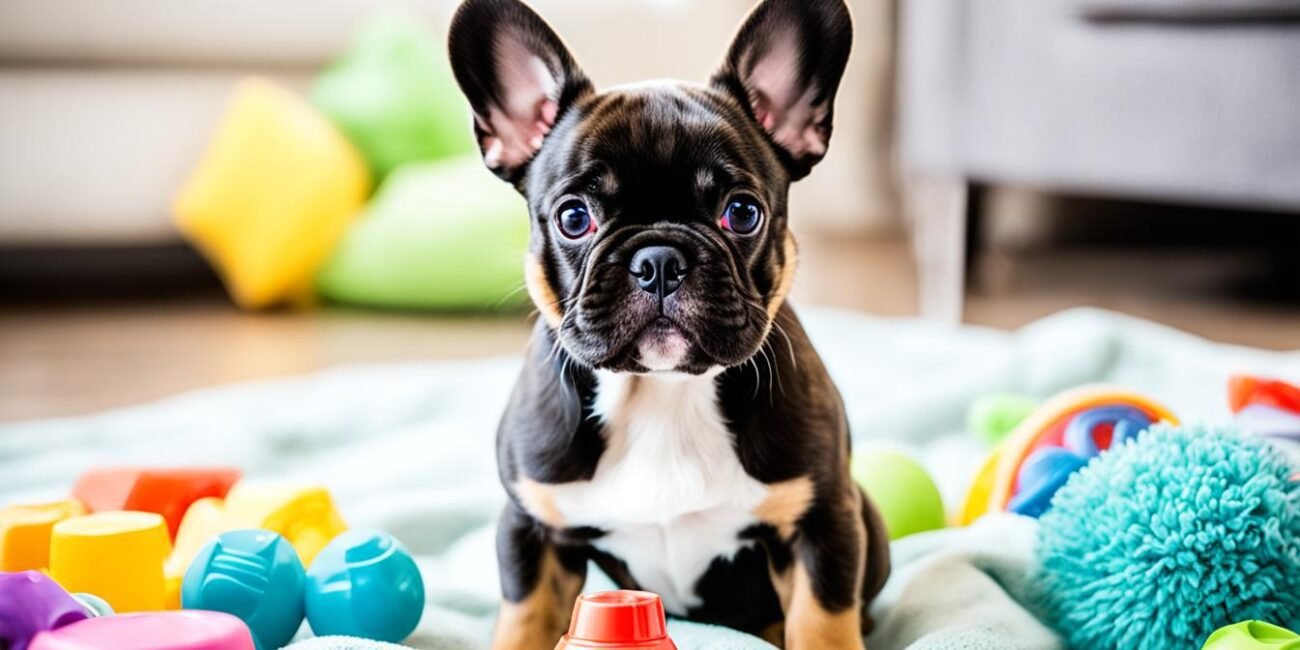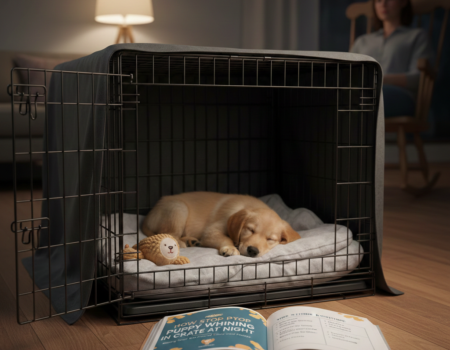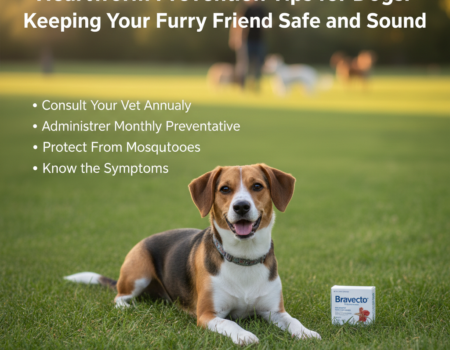Did you know that French Bulldogs are one of the most popular dog breeds in the United States? These adorable little pups are known for their affectionate nature and playful personalities. If you’re lucky enough to have a baby French Bulldog in your life, it’s important to provide them with the best care possible to ensure their health and happiness.
Key Takeaways:
- French Bulldogs are one of the most popular dog breeds in the United States.
- Proper care is essential for the health and happiness of your baby French Bulldog.
- Regular vet check-ups, a balanced diet, exercise, grooming, and attention to specific needs are crucial.
- French Bulldogs are prone to certain health issues, so monitoring their well-being is important.
- Consult with a veterinarian for personalized advice and guidance on caring for your baby French Bulldog.
Keeping Your Baby French Bulldog Safe from Heat
French Bulldogs are adorable little companions, but their short snouts make them more susceptible to heat-related breathing difficulties. It’s essential to take extra precautions to keep your Frenchie safe and cool, especially during hot weather.
Here are some tips to help you protect your baby French Bulldog from the heat:
- Provide shade: Make sure your Frenchie has access to shaded areas, both indoors and outdoors. This will allow them to escape the direct heat of the sun and cool down.
- Plenty of water: Keep fresh water available at all times. Hydration is crucial for your Frenchie’s well-being, particularly in warm weather.
- Limit exercise: Avoid strenuous exercise and long walks during the hottest parts of the day. Instead, plan activities in the morning or evening when the temperatures are cooler.
- Cooling products: Consider using cooling mats or vests specially designed for dogs. These products can help regulate your Frenchie’s body temperature and provide additional comfort.
When enjoying outdoor activities with your baby French Bulldog, keep a close eye on their behavior for any signs of overheating. These signs may include excessive panting, drooling, disorientation, or weakness. If you suspect your Frenchie is overheating, take immediate steps to cool them down:
- Find a shaded area and bring your Frenchie indoors if possible.
- Offer cool, not cold, water in small amounts.
- Apply a cool, damp cloth to your Frenchie’s belly, paws, and ears.
- Use a fan or air conditioning to help lower their body temperature.
It’s crucial to monitor your baby French Bulldog’s body temperature and ensure it returns to normal. If you’re unable to cool them down, or if they show signs of distress, contact your veterinarian immediately for guidance and medical assistance.
Remember, by taking the necessary precautions and providing proper care, you can keep your precious baby French Bulldog safe and healthy even during the hottest days.
Keeping Your Baby French Bulldog Fit and Healthy
Ensuring the health and fitness of your baby French Bulldog is essential for their overall well-being. By providing the right diet, exercise, and regular veterinary care, you can help your Frenchie grow into a happy and healthy adult dog.
First and foremost, it’s important to provide your Frenchie with a balanced diet that is suitable for their age, size, and activity level. A high-quality dog food formulated for puppies is recommended, as it contains the necessary nutrients to support their growth and development. Remember to consider any specific dietary requirements or restrictions that your Frenchie may have, such as allergies or sensitivities.
Your Frenchie’s exercise routine plays a vital role in their fitness. Regular physical activity, such as daily walks or playtime, not only helps them maintain a healthy weight but also promotes cardiovascular health and keeps their muscles strong. Keep in mind that French Bulldogs are a brachycephalic breed, which means they are prone to breathing difficulties. Avoid overexerting your Frenchie in hot weather or overly strenuous activities.
Regular veterinary check-ups are crucial in ensuring the overall health of your baby French Bulldog. Vaccinations, parasite control, and preventive care are essential to protect your Frenchie from common illnesses and parasites.
In addition to physical health, mental stimulation is equally important for your Frenchie’s well-being. Interactive toys and puzzles can provide mental challenges and prevent boredom.
Remember to consult your veterinarian for personalized advice on the specific needs of your baby French Bulldog.
Nutrition Guidelines for a Baby French Bulldog
Proper nutrition is the foundation for your Frenchie’s health and well-being. Here are some guidelines to keep in mind when feeding your baby French Bulldog:
- Choose a high-quality puppy food that is specifically formulated for small, brachycephalic breeds.
- Follow the recommended feeding guidelines provided by the manufacturer based on your Frenchie’s weight and age.
- Avoid overfeeding, as excess weight can strain their joints and lead to obesity.
- Provide fresh water at all times.
- Avoid feeding your Frenchie human food or table scraps, as certain ingredients can be harmful to their health.
Exercise Tips for a Baby French Bulldog
Regular exercise is essential to keep your Frenchie fit and healthy. Here are some exercise tips for your baby French Bulldog:
- Engage in daily walks to provide mental and physical stimulation.
- Play interactive games, such as fetch or puzzle toys, to keep your Frenchie entertained.
- Avoid excessive exercise in hot weather, as French Bulldogs are prone to heat-related breathing difficulties.
- Monitor your Frenchie’s breathing during exercise and provide breaks when needed.
Veterinary Care for a Baby French Bulldog
Regular veterinary care is essential for the health and well-being of your baby French Bulldog. Here are some key aspects of veterinary care:
- Schedule regular check-ups with your veterinarian to monitor your Frenchie’s overall health.
- Follow your veterinarian’s recommendations for vaccinations to protect your Frenchie from infectious diseases.
- Discuss preventive measures for flea, tick, and parasite control.
- Monitor your Frenchie’s weight and discuss diet and feeding guidelines with your veterinarian.
By following these guidelines, you can ensure that your baby French Bulldog remains fit, healthy, and happy throughout their life.
Grooming Tips for Your Baby French Bulldog
Grooming is an essential part of caring for your baby French Bulldog. Regular grooming practices not only help maintain their health but also keep them looking their best. Here are some tips to ensure your Frenchie stays clean and well-groomed:
Brushing:
Regular brushing helps remove loose hair, prevents matting, and stimulates the skin. Use a soft-bristle brush or grooming mitt to gently brush your Frenchie’s coat. Pay extra attention to the areas that tend to accumulate more hair, such as the chest and behind the ears.
Bathing:
Occasional bathing is necessary to keep your Frenchie clean and fresh. Use a gentle dog shampoo specifically formulated for their sensitive skin. Be careful not to overbathe them, as it can strip their coat of natural oils. Once a month or whenever they get dirty is usually sufficient.
Cleaning Wrinkles:
French Bulldogs have adorable wrinkles, but they can also trap dirt and moisture, leading to skin irritation or infections. Use a damp cloth or dog wipes to clean their wrinkles gently. Make sure to dry the area thoroughly to prevent any moisture buildup.
Trimming Nails:
Regular nail trims are essential to prevent overgrowth, which can cause discomfort or difficulty walking. Use a dog nail trimmer or grinder to trim their nails carefully. If you’re unsure or uncomfortable doing it yourself, consult a professional groomer or your veterinarian.
Cleaning Ears:
French Bulldogs are prone to ear problems, so keeping their ears clean is crucial. Use a damp cloth or a dog-specific ear cleaner to gently wipe the outer part of their ears. Avoid inserting anything into their ear canal, as it can cause injury. If you notice any signs of infection or excessive wax buildup, consult your veterinarian.
Brushing Teeth:
Just like humans, dogs need regular dental care. Brush your Frenchie’s teeth with a dog-specific toothbrush and toothpaste. Start slowly, allowing them to get used to the process. Aim for brushing their teeth at least a few times a week to maintain oral hygiene and prevent dental issues.
Grooming your baby French Bulldog not only keeps them looking their best but also contributes to their overall well-being. With proper grooming practices, your Frenchie will be healthy, happy, and ready to conquer the world!
Common Health Problems in Baby French Bulldogs
When it comes to baby French Bulldogs, it’s important to be aware of the common health problems they may face. While these adorable pups bring so much joy, they are prone to certain conditions that require attention and care.
One of the most well-known health concerns in Frenchies is their breathing difficulties. Having a short snout can lead to respiratory issues, especially in hot weather. It’s crucial to provide them with a cool and comfortable environment, ensuring they have access to shade and plenty of fresh water.
Additionally, baby French Bulldogs are susceptible to skin allergies, which can cause itching, redness, and discomfort. Regular grooming, such as proper bathing and brushing, can help minimize these issues and keep their sensitive skin healthy.
Eye problems are another area of concern for these charming canines. Conditions like cherry eye, dry eye, and cataracts can affect their vision and overall well-being. Keeping their eyes clean and consulting with a veterinarian about any abnormalities or signs of discomfort is essential.
Hip dysplasia, a common orthopedic condition, is also prevalent in French Bulldogs. This condition affects the hip joints and can lead to pain and mobility issues. Regular exercise and maintaining a healthy weight can help reduce the risk of hip dysplasia in these adorable pups.
In some cases, baby French Bulldogs may develop intervertebral disk disease, which affects the spine and can result in pain, weakness, or paralysis. Monitoring their activity level and providing a safe environment can help prevent this condition and ensure their spinal health.
Gastrointestinal problems, including allergies, sensitivities, and digestive disorders, are also common in French Bulldogs. Feeding them a balanced diet that meets their nutritional needs and avoiding known allergens can help alleviate gastrointestinal issues.
Responsible breeders play an essential role in reducing the chances of genetic diseases by screening parent dogs. It’s important to choose a reputable breeder when getting a baby French Bulldog to minimize the risk of inherited health conditions.
Regular veterinary care is crucial throughout a baby French Bulldog’s life. Vaccinations, routine exams, and early detection of any health problems are integral to their overall well-being and longevity. If you notice any signs of discomfort, unusual behaviors, or physical abnormalities, consult with a veterinarian promptly.
The well-being of your baby French Bulldog matters!
Remember to prioritize their health and happiness by providing them with proper care, regular check-ups, and a safe environment. By being proactive and attentive to their specific needs, you can ensure that your adorable baby French Bulldog grows into a healthy and joyful member of your family.
Choosing the Right Diet for Your Baby French Bulldog
When it comes to keeping your baby French Bulldog healthy and happy, providing them with the right diet is essential. A high-quality, balanced diet that is appropriate for their age, size, and activity level will ensure they have the nutrition they need to thrive.
When choosing food for your baby French Bulldog, remember to avoid overfeeding to prevent weight gain, which can lead to health issues. Pay attention to the protein content in the food to prevent allergies, as some French Bulldogs may have sensitivities to certain proteins. It’s also a good idea to feed smaller, more frequent meals to minimize digestive issues.
Avoid giving your baby French Bulldog table scraps as they can be high in salt, sugar, or unhealthy fats, which can be harmful to their health. Instead, choose a nutritionally complete diet that is specifically formulated for French Bulldogs.
By providing your baby French Bulldog with a balanced and nutritious diet, you are setting them up for a lifetime of good health and well-being.
The Importance of a Balanced Diet for Baby French Bulldogs
A balanced diet plays a crucial role in the overall health and development of baby French Bulldogs. Here are some key benefits of providing them with the right nutrition:
- Proper growth: A balanced diet ensures that your baby French Bulldog gets the necessary nutrients for healthy growth and development.
- Strong immune system: Nutrient-rich food strengthens their immune system, making them less prone to illnesses.
- Healthy skin and coat: A diet containing essential fatty acids promotes healthy skin and a shiny coat.
- Optimal energy levels: The right balance of proteins, carbohydrates, and fats provides the energy they need for daily activities.
- Digestive health: Choosing a diet with high-quality ingredients supports proper digestion, minimizing the risk of gastrointestinal issues.
Remember to consult with your veterinarian to determine the best diet for your baby French Bulldog, taking into account their unique needs and any specific health considerations.
| Dietary Guidelines | Recommendations |
|---|---|
| Feeding Schedule | Feed smaller, more frequent meals to minimize digestive issues. |
| Caloric Intake | Avoid overfeeding to prevent weight gain. Consult with your vet for specific calorie requirements. |
| Protein Content | Choose a diet with moderate protein content to prevent allergies. |
| Nutrient Balance | Ensure a proper balance of proteins, carbohydrates, and fats for optimal nutrition. |
| Avoid Table Scraps | Avoid giving your Frenchie table scraps, as they can be high in salt, sugar, or unhealthy fats. |
| Diet Selection | Choose a nutritionally complete diet specifically formulated for French Bulldogs. |
Preventing Ear Problems in Baby French Bulldogs
French Bulldogs are adorable little pups with their unique floppy ears. However, those cute ears can also make them prone to ear problems. Taking preventive measures can help ensure your baby French Bulldog’s ears stay clean and healthy. Here are some tips to keep those ears in top shape:
- Clean their ears regularly: Gently clean your Frenchie’s ears using a damp cloth or a dog-specific ear cleaner. This helps remove any dirt or debris that may have accumulated.
- Avoid exposing their ears to water: While regular cleaning is important, it’s essential to avoid excessive exposure to water as it can lead to moisture buildup and increase the risk of infection.
- Be cautious not to over-clean: Cleaning your Frenchie’s ears is crucial, but overdoing it can disrupt the natural balance of bacteria in their ears, which could potentially lead to issues. Clean their ears as needed, but don’t over-clean.
By following these simple steps, you can help prevent ear problems and ensure your baby French Bulldog enjoys happy and healthy ears.
Caring for Newborn French Bulldog Puppies
When it comes to caring for newborn French Bulldog puppies, providing proper warmth, nutrition, and stimulation is essential for their wellbeing.
The temperature of the whelping box should be maintained between 86 to 90 degrees to ensure the puppies stay warm and comfortable. This is particularly important because newborn French Bulldog puppies are more sensitive to fluctuations in temperature.
Newborn puppies typically receive essential nutrients from their mother’s milk. However, there may be instances where supplementary feeding becomes necessary if the puppies are not latching adequately. In such cases, seek guidance from a veterinarian to ensure the puppies are receiving the appropriate nutrition.
Additionally, to aid their bowel movements, gentle stimulation is required. This can be done by wiping their genitals with a damp cotton ball or applying a small amount of petroleum jelly. This process encourages urination and defecation, as newborn puppies are unable to do so independently.
“Caring for newborn French Bulldog puppies requires attention to their unique needs, including maintaining warmth, providing proper nutrition, and ensuring appropriate stimulation for bowel movements.”
By following these guidelines, you can promote the healthy growth and development of newborn French Bulldog puppies, setting them on the path to a happy and vibrant life.
| Important Considerations for Caring for Newborn French Bulldog Puppies |
|---|
| Temperature: Maintain the temperature of the whelping box between 86 to 90 degrees to keep the puppies warm. |
| Nutrition: Newborn puppies typically derive essential nutrients from their mother’s milk. Consider supplementary feeding if latch issues arise. |
| Bowel Stimulation: Gently stimulate the puppies’ genitals to encourage urination and defecation. |
Conclusion
Caring for a baby French Bulldog is a rewarding and fulfilling experience. These adorable creatures require special attention to ensure their well-being throughout their lives. By understanding their specific needs and providing them with proper care and attention, you can ensure that your baby Frenchie grows into a happy and healthy adult dog.
One of the key considerations when caring for a baby French Bulldog is their heat sensitivity. Due to their short snouts, Frenchies can be prone to heat-related breathing difficulties. It’s important to provide them with shade, plenty of water, and limit their exercise during hot weather. Additionally, using cooling products such as mats or vests can help keep them comfortable.
In addition to heat sensitivity, French Bulldogs may have certain health issues that require attention. Regular veterinary check-ups, vaccinations, and preventive care are crucial in monitoring and treating any health problems that may arise. It’s important to be aware of common issues such as breathing difficulties, skin allergies, eye problems, hip dysplasia, and gastrointestinal issues.
Grooming also plays a significant role in keeping your baby Frenchie happy and healthy. Regular brushing, occasional bathing, cleaning their wrinkles, trimming their nails, and dental hygiene are all important aspects of their grooming routine. By maintaining their coat and cleanliness, you can prevent skin issues and maintain their overall well-being.
Remember, it is always best to consult with a veterinarian for personalized advice and guidance when it comes to caring for your unique baby French Bulldog. They will be able to provide you with expert recommendations and ensure that your furry friend receives the best possible care.
FAQ
How should I care for my baby French Bulldog?
Caring for a baby French Bulldog involves paying attention to their specific needs, such as heat sensitivity, exercise requirements, grooming, health issues, diet, and ear care. By providing them with proper care and attention, you can ensure that your baby Frenchie grows into a happy and healthy adult dog. Remember to always consult with a veterinarian for personalized advice and guidance in caring for your unique baby French Bulldog.
How can I keep my baby French Bulldog safe from heat?
French Bulldogs, with their short snouts, are prone to heat-related breathing difficulties. To keep your Frenchie safe from heat, provide them with shade, plenty of water, limit exercise during hot weather, and use cooling products such as mats or vests. Watch for signs of overheating and take immediate steps to cool your Frenchie down if needed.
What can I do to keep my baby French Bulldog fit and healthy?
To keep your Frenchie fit and healthy, provide them with a balanced diet appropriate for their age, size, and activity level. Regular exercise, such as daily walks and playtime, is important to maintain their health. Regular veterinary check-ups and preventive care, such as vaccinations and parasite control, are also essential. Avoid overfeeding to prevent obesity and provide mental stimulation through interactive toys and puzzles.
How should I groom my baby French Bulldog?
Grooming a French Bulldog involves regular brushing, occasional bathing with gentle dog shampoo, cleaning their wrinkles with a damp cloth or dog wipes, trimming their nails, cleaning their ears with a damp cloth and gentle cleaner, and brushing their teeth regularly. These grooming practices help maintain their health and appearance.
What are the common health problems in baby French Bulldogs?
French Bulldogs are prone to certain health issues such as breathing difficulties, skin allergies, eye problems, hip dysplasia, intervertebral disk disease, and gastrointestinal issues. Responsible breeders screen their parent dogs to reduce the chances of passing on genetic diseases. Regular veterinary care, including vaccinations and routine exams, is important to monitor and treat any health problems that may arise.
What diet should I choose for my baby French Bulldog?
Provide your Frenchie with a high-quality, balanced diet appropriate for their age, size, and activity level. Avoid overfeeding to prevent weight gain, watch the protein content to prevent allergies, and consider feeding smaller, more frequent meals to minimize digestive issues. Avoid table scraps and choose a nutritionally complete diet for your Frenchie’s overall health.
How can I prevent ear problems in my baby French Bulldog?
French Bulldogs are prone to ear problems due to their floppy ears. To prevent ear problems, clean their ears regularly with a damp cloth or dog-specific ear cleaner, avoid exposing their ears to water, and be cautious not to over-clean, as it can disrupt the natural balance of bacteria.
How do I care for newborn French Bulldog puppies?
Newborn French Bulldog puppies require warmth, proper nutrition, and stimulation for bowel movement. The temperature of the whelping box should be maintained between 86 to 90 degrees. Puppies should receive nutrients from their mother’s milk, but supplementary feeding may be necessary if they are not latching adequately. Stimulation for bowel movement should be done by gently wiping their genitals with a damp cotton ball or petroleum jelly.










No Comment! Be the first one.